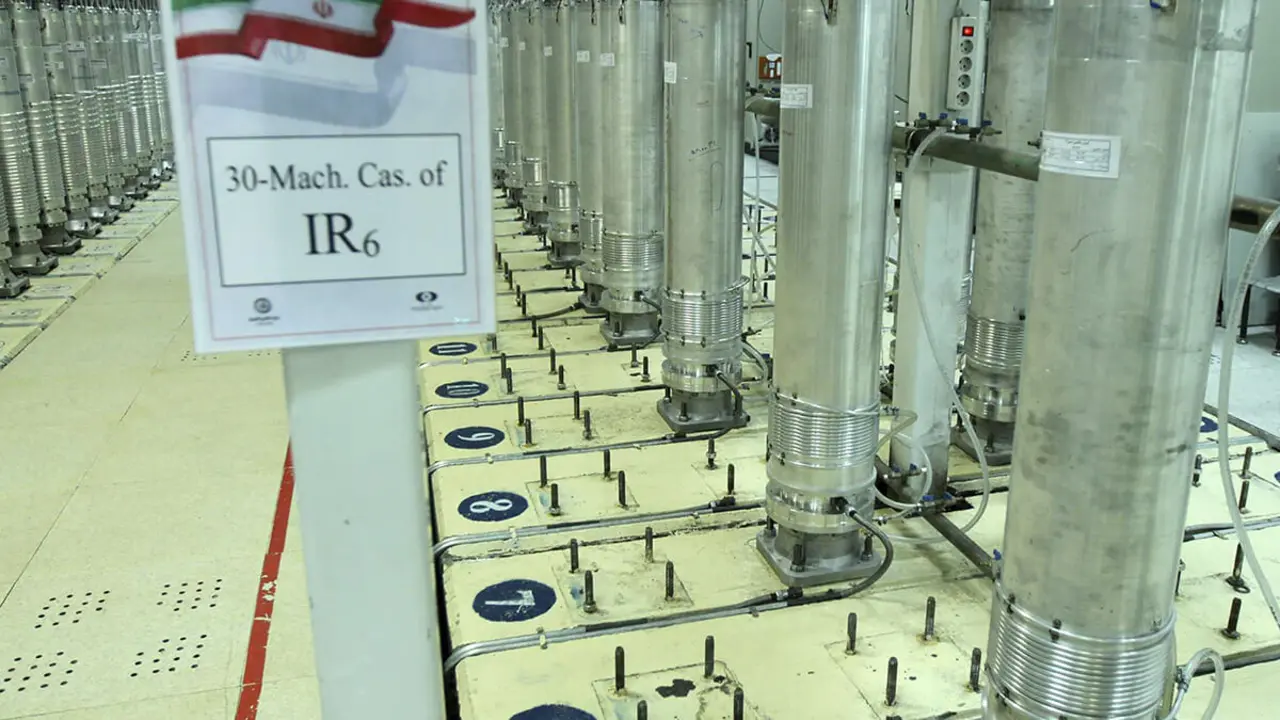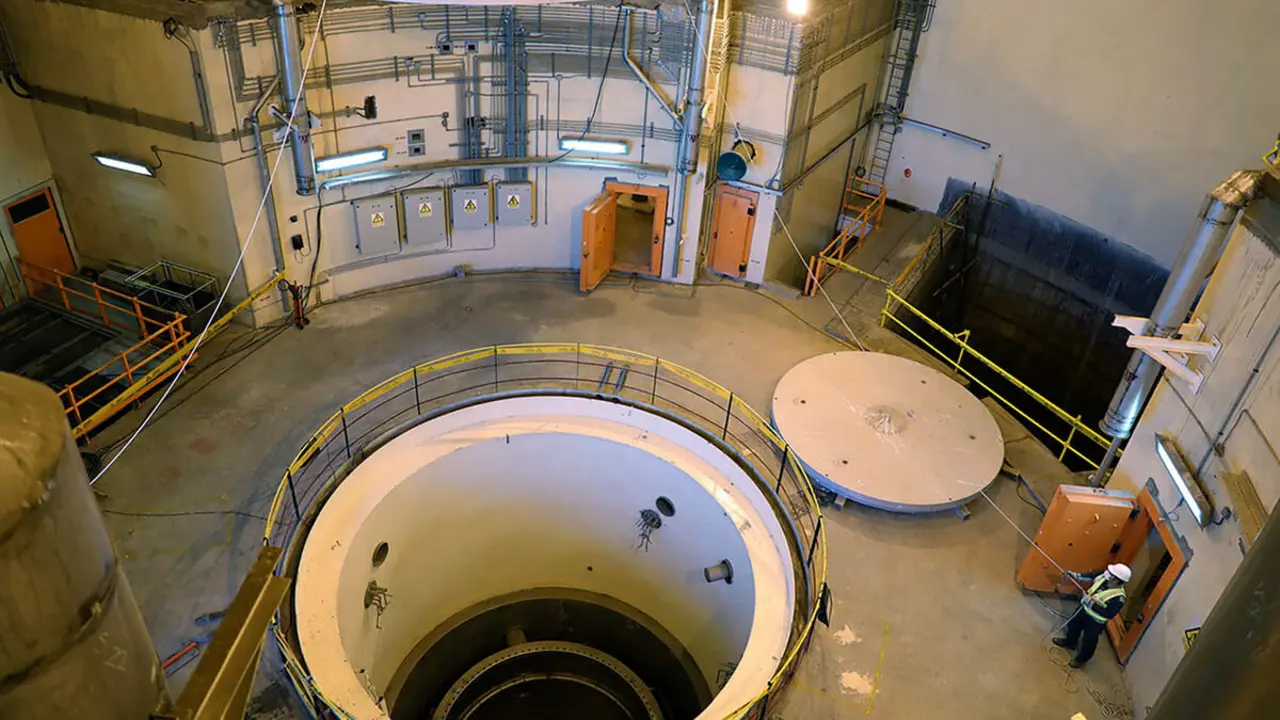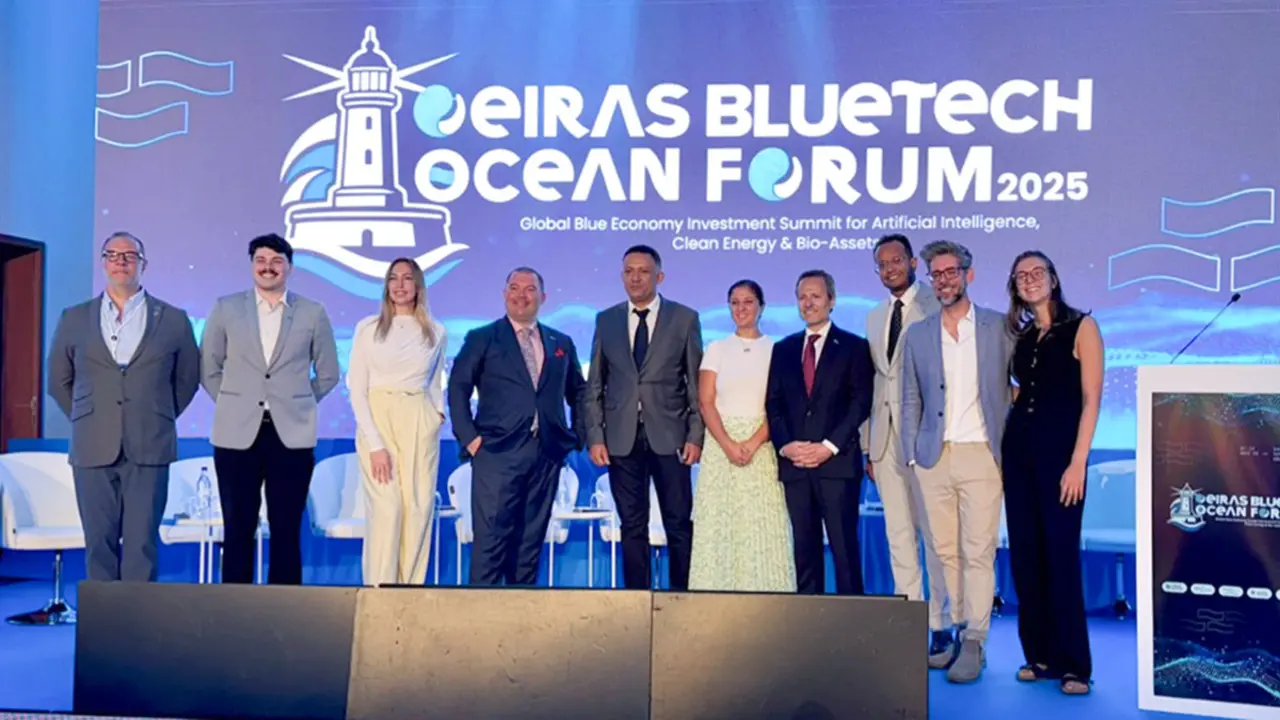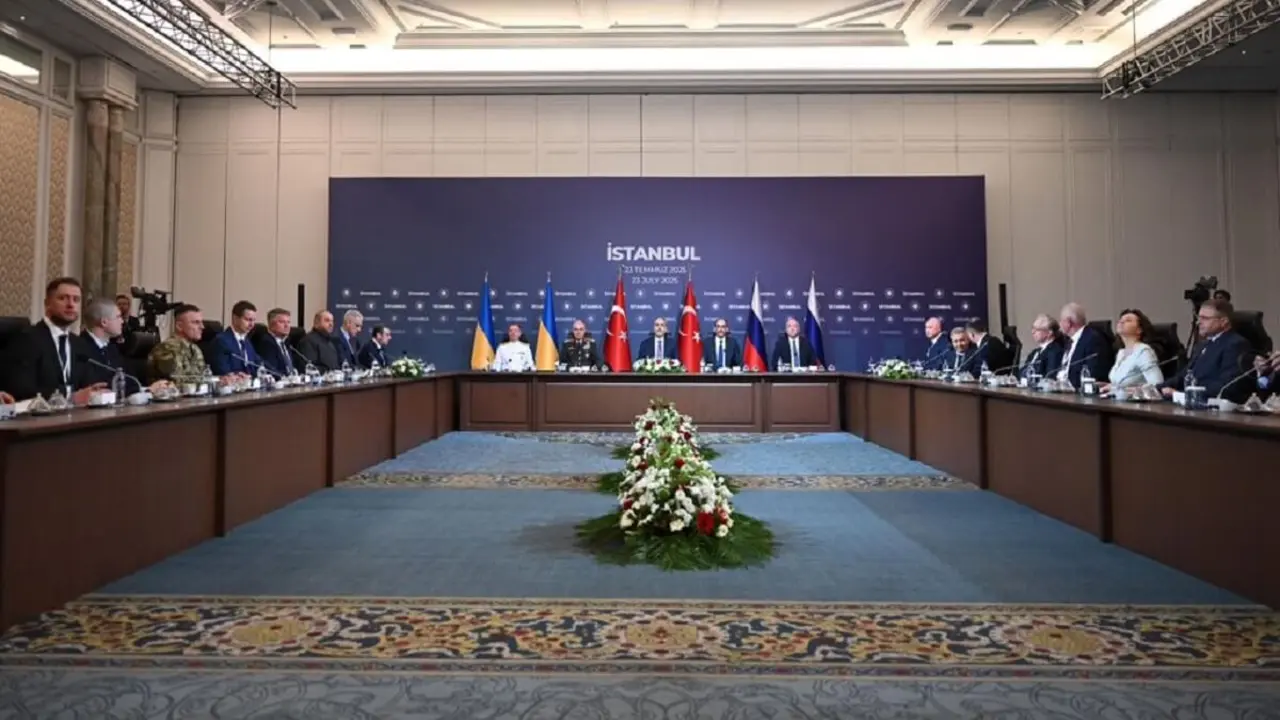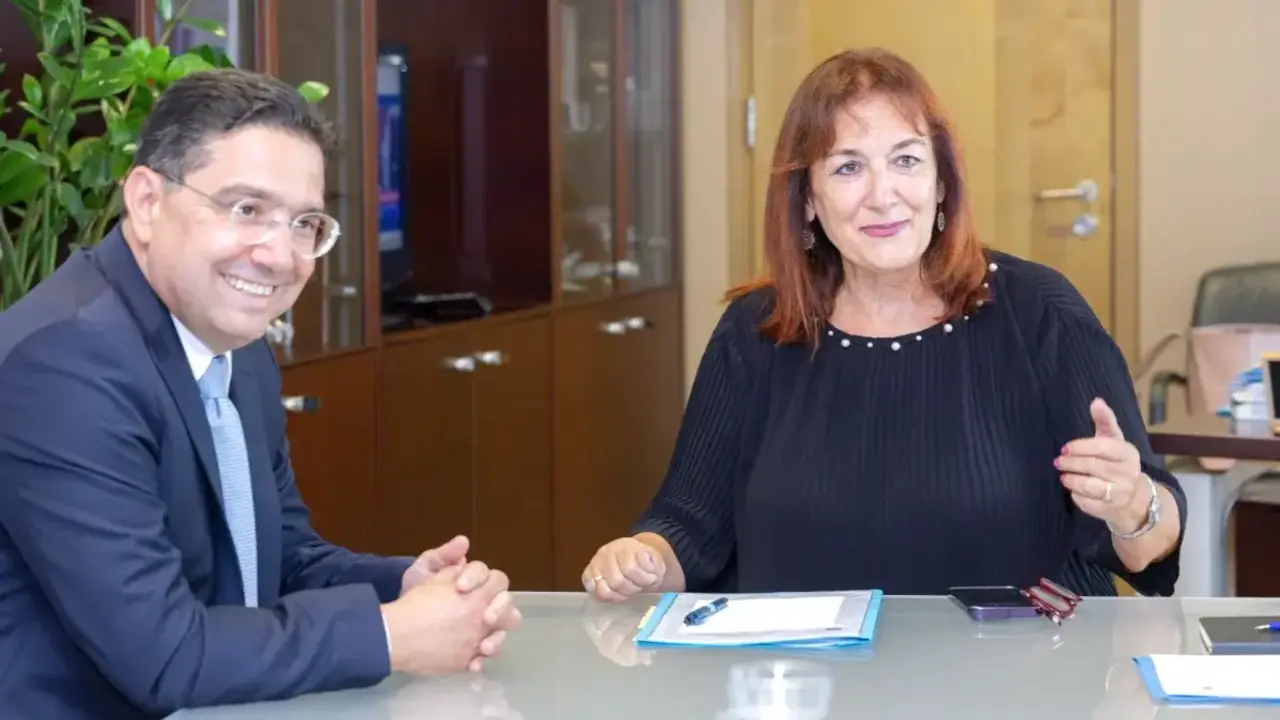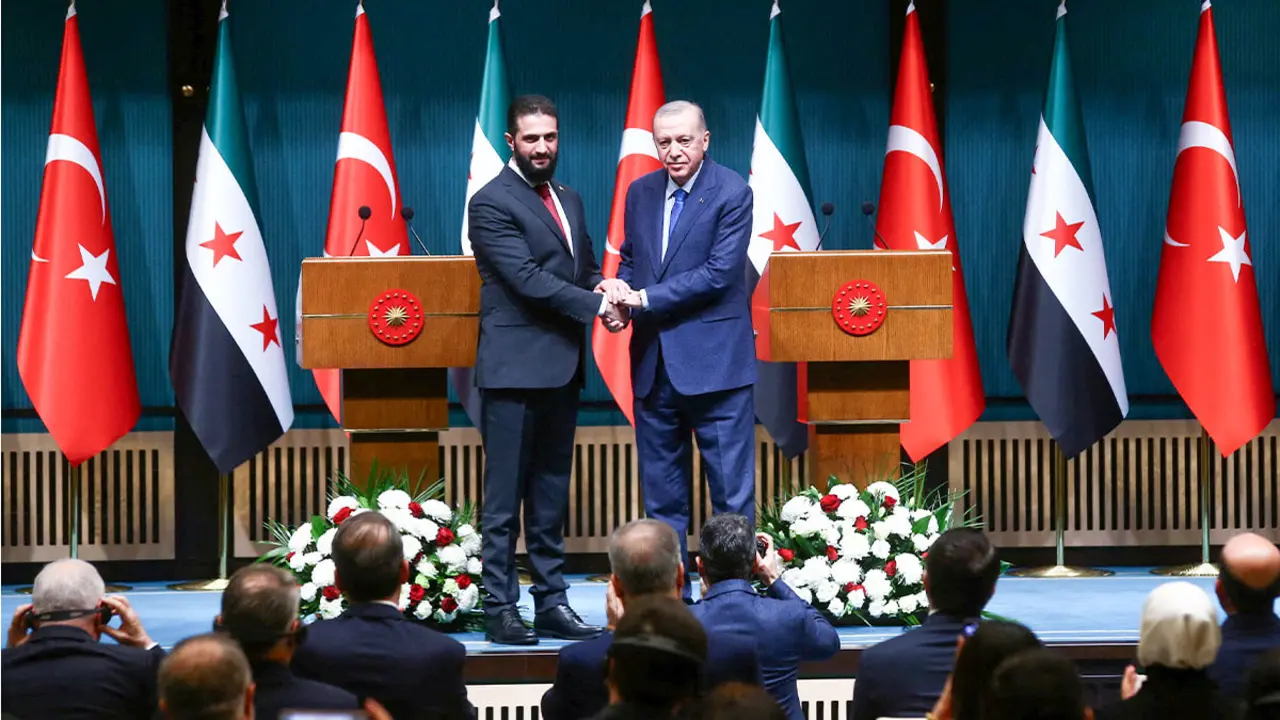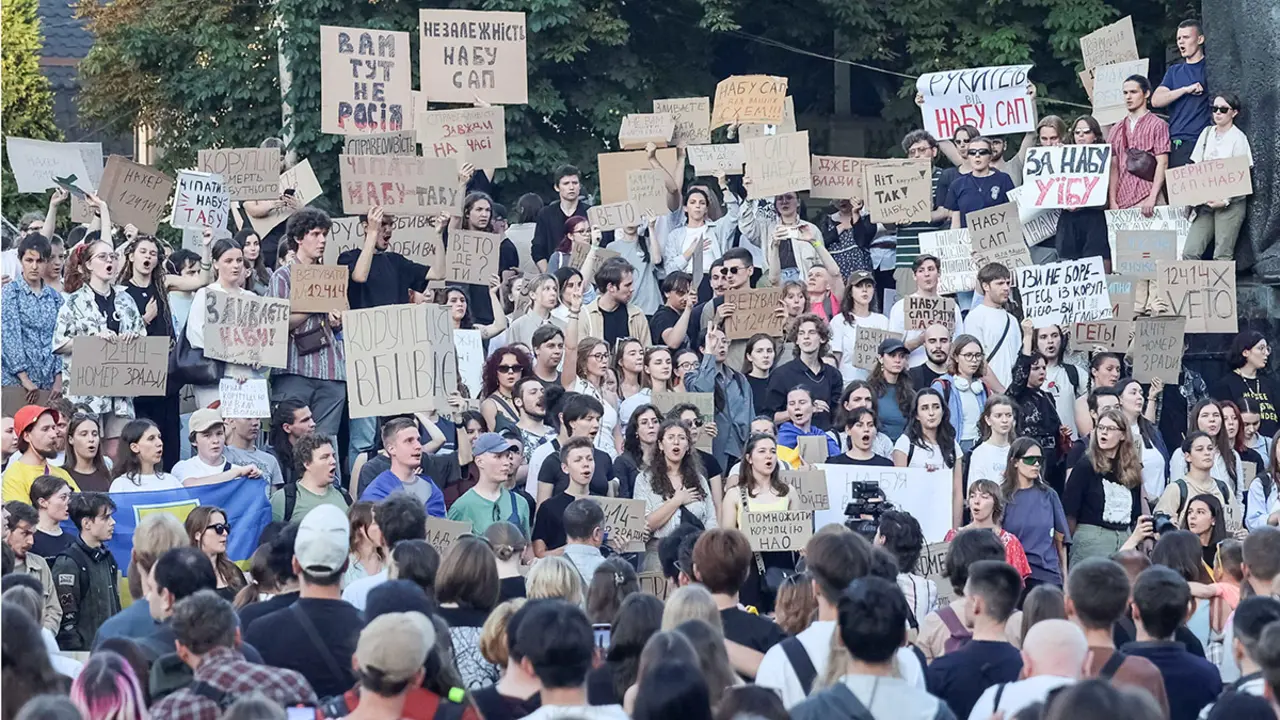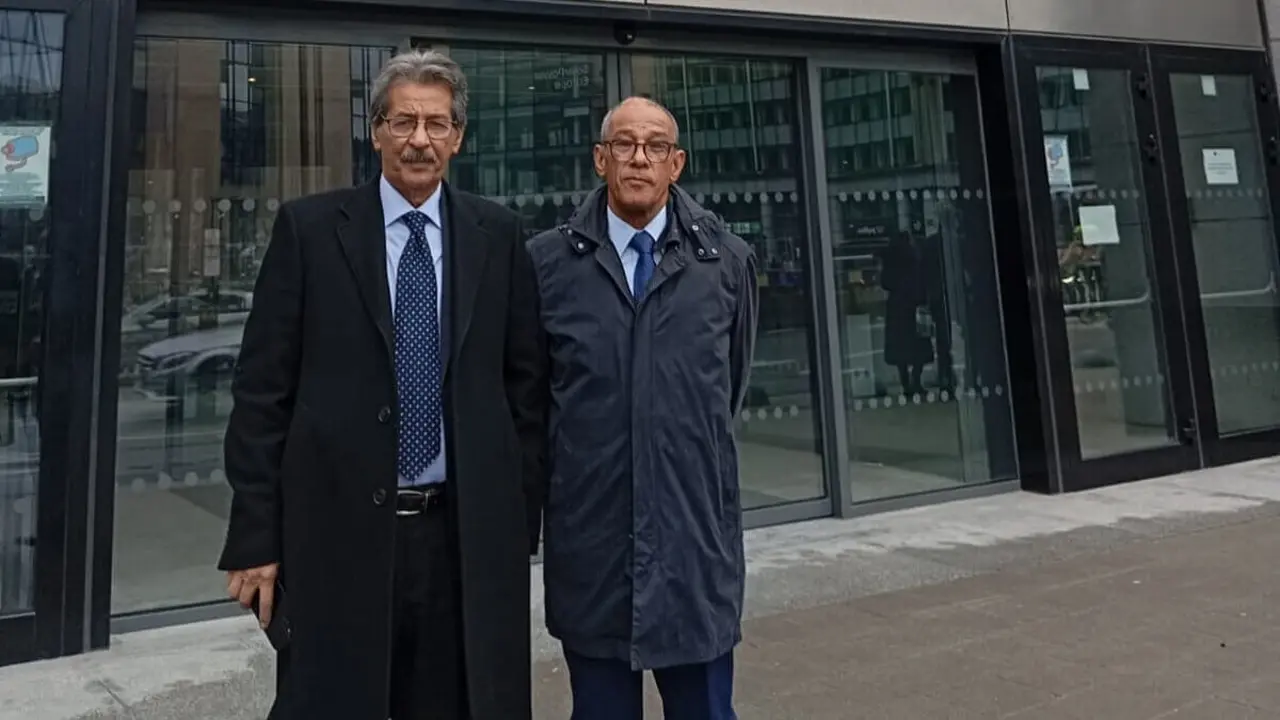Felipe VI calls politicians for dialogue and serenity for the common good.
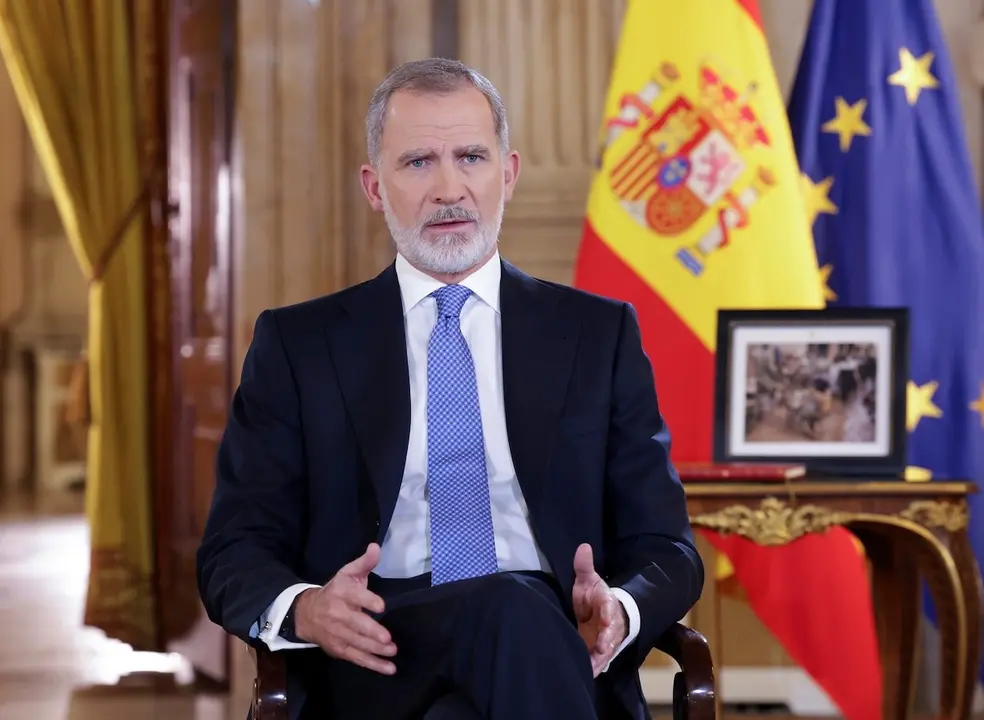
The terrible Dana, which has caused so much damage to thousands of people in the Valencian Community and in other parts of Spain, was the main theme of King Felipe VI's Christmas message delivered from the Royal Palace in Madrid.
In this context of thundering political strife, he called for dialogue and serenity from politicians with the awareness of the common good and a coexistence pact, which society demands from the political class.
Emisión del vídeo resumen de las actividades de la Familia Real durante el año 2024, previo al Mensaje de Navidad de Su Majestad el Rey de las 21h (20h en Canarias).https://t.co/OQgOjfmw1z
— Casa de S.M. el Rey (@CasaReal) December 24, 2024
Precisely, the concept of the common good appeared seven times in the words of Felipe VI, who demanded that aid should reach the people who need it to rebuild their future and that the administrations should coordinate more and better to solve the problems of citizens who have every right to express their discomfort at what they are suffering.
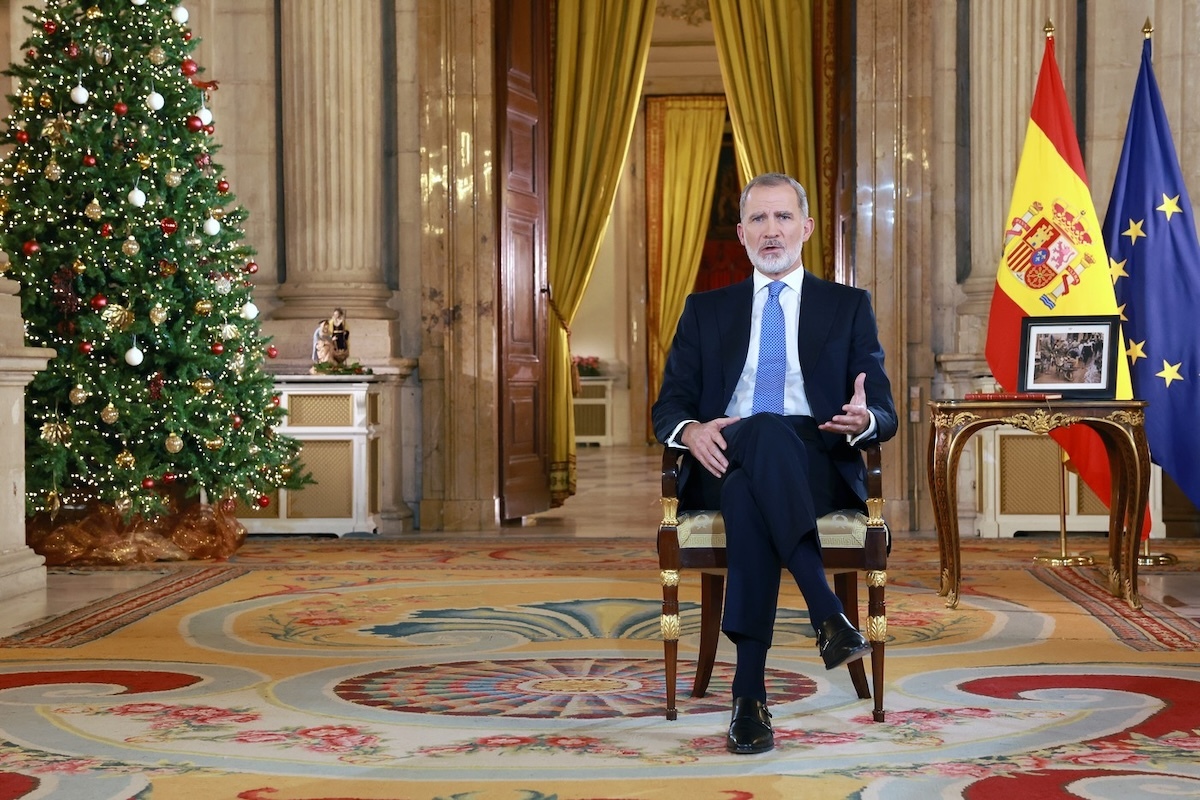
Felipe VI highlighted the role of young people in the deployment of solidarity, whom he sees as a guarantee for the future and advocated that the solidarity that has united us in the most difficult times should continue to be present in every gesture, in every action, in every decision.
He also addressed the growing international instability, the difficulties of access to housing and the importance of adequately managing immigration, a phenomenon that he described as complex and of great social sensitivity, which must be treated with balance and responsibility. Being, therefore, a daily reality, migration can lead, without proper management, to tensions that erode social cohesion.
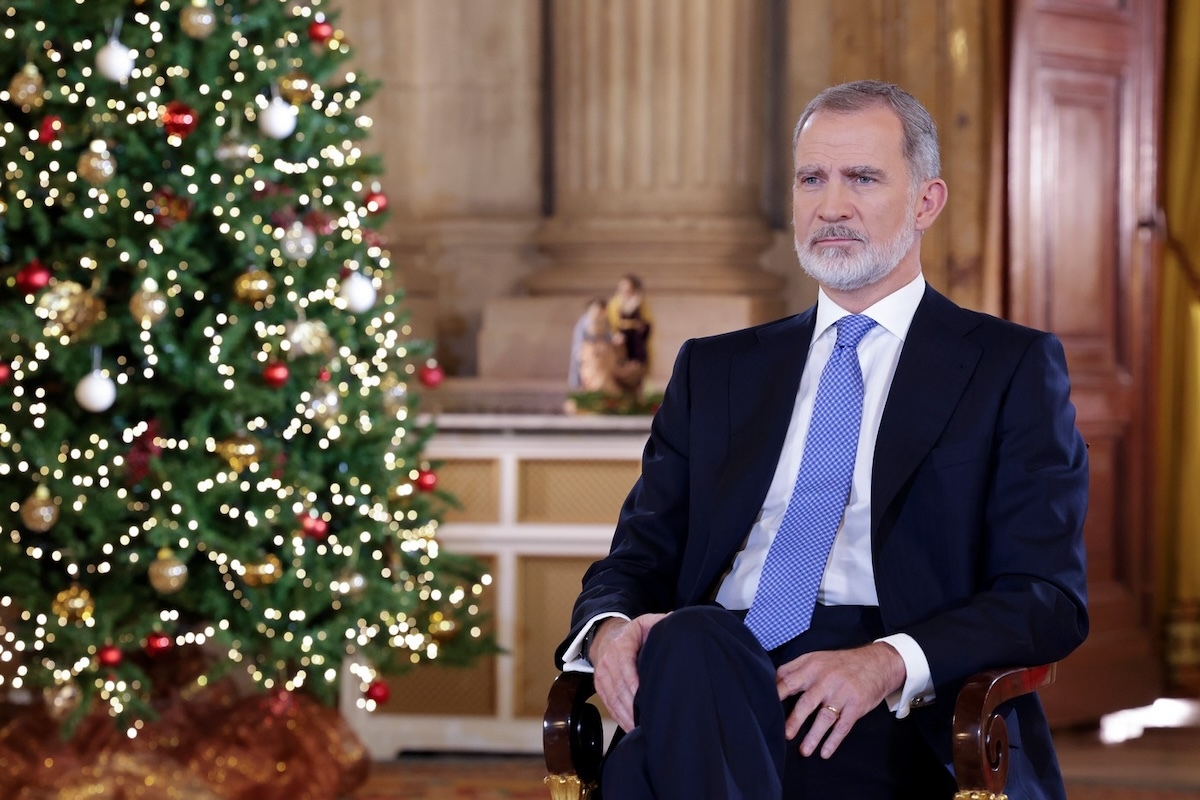
Felipe de Borbón stressed that the integration effort is a shared task that requires respect for the law, the dignity of individuals and a commitment to the basic rules of coexistence. He also emphasized the need to firmly combat the mafias that traffic in human beings.
The King pointed out the difficulty of young people in accessing decent housing and called on all actors involved, from institutions to the private sector, to engage in a constructive dialogue leading to concrete and affordable solutions.
Regarding the geopolitical situation, Felipe VI stressed the need to defend democratic principles in a global context marked by uncertainty. He pointed out how violence, the questioning of international law and the denial of universal human rights threaten the world order. He also expressed his concern about global challenges such as climate crises, pandemics, energy transition and the scarcity of natural resources.
Felipe VI claimed that in this context, Spain and the other Member States of the European Union must continue to defend with conviction and firmness, together with our international partners, the foundations of liberal democracy, the defense of human rights and the achievements in social welfare on which our great political project is based.
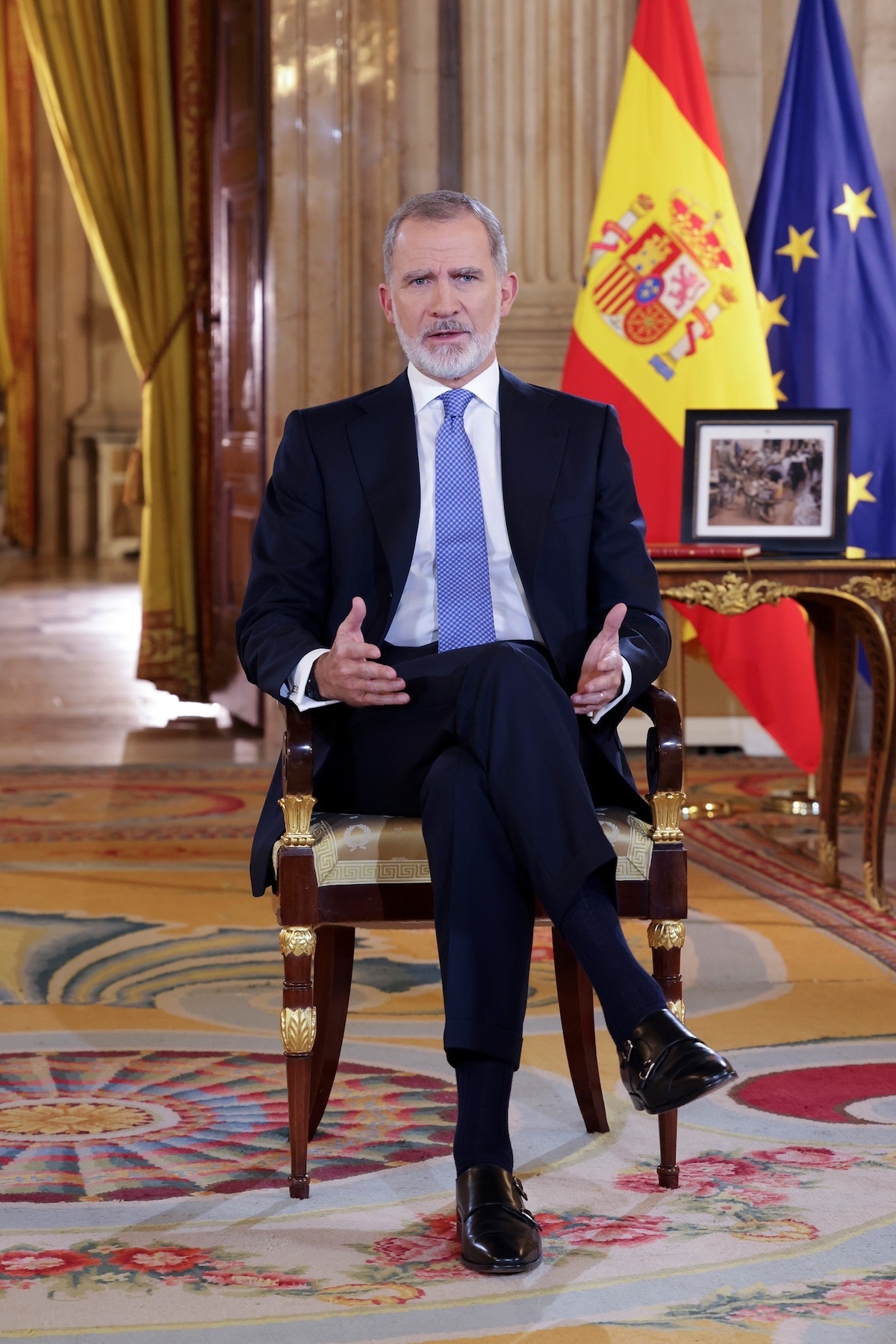
Full text of the Christmas message of King Felipe VI
Good evening and thank you for allowing me to accompany you for a few moments on such a special night of meeting and celebration, which I wish you, along with the Queen, Princess Leonor and Princess Sofia, a happy and peaceful one.
This Christmas Eve I would like to refer first, and I am sure you understand me, to the terrible Dana that almost two months ago hit with unusual force several areas in the east and south of Spain, especially in Valencia.
The people who lost their lives and the missing deserve all our respect and we must never forget the pain and sadness they have left in their families. Thousands of people saw how what until recently was their town, their neighborhood, their work, their home, their business, their school, were reduced to rubble or even disappeared. A difficult event to accept, but one from which we should all be able to draw the necessary lessons to strengthen us as a society and make us grow.
We must never forget those first images of the flood that swept away everything, the rescues of people, some of them sick, elderly or exhausted, trying to get out of their cars or taking refuge on roofs and rooftops. We also saw those who opened their homes to welcome the most vulnerable, opposing the relentless force of water and mud with the overwhelming force of solidarity and humanity. Neighbors, volunteers, civil protection teams, firefighters, security forces, Armed Forces, NGOs, and also companies that organized collections and donations, even mobilizing their personnel and machinery... the help and collaboration of all is gradually allowing the more than 800,000 people affected to recover a certain degree of normality in their lives. And that the medium and long term will also be taken care of to ensure a real recovery.
This solidarity in its purest and most concrete sense, we have recognized it day after day in the enormous work of anonymous volunteers and public servants; and we have also seen -and understood- the frustration, the pain, the impatience, the demands for greater and more effective coordination of the administrations. Because all these emotions - those that move and comfort and those that hurt and grieve - stem from the same root: the awareness of the common good, the expression of the common good, or the demand for the common good.
Over and above any possible divergences and disagreements, Spanish society has a clear idea of what is in everyone's interest, of what benefits everyone and that, for this reason, we have the interest and responsibility to protect and strengthen it. This is something that the Queen and I have been able to confirm and value even more during this decade of reign. It is the responsibility of all institutions, of all public administrations, to ensure that this notion of the common good continues to be clearly reflected in any speech or any political decision. Consensus on what is essential, not only as a result but also as a constant practice, must always guide the public sphere. Not to avoid the diversity of opinions, which is legitimate and necessary in democracy, but to prevent this diversity from leading to the denial of the existence of a shared space.
It is in this agreement on the essentials that we must address the issues that concern us and that affect us in different ways in our collective life. The growing international instability, the climate in which our public debate often takes place, the difficulties in access to housing or the management of immigration are issues, among others, that deserve our attention and that I would also like to address tonight.
Immigration is a complex and socially sensitive phenomenon that responds to a variety of causes. Without population movements throughout history, today's societies, which are open and interconnected societies, could not be explained. Being, therefore, a daily reality, migrations can lead - without proper management - to tensions that erode social cohesion.
The effort of integration, which is everyone's responsibility, the respect -also everyone's- for the laws and basic rules of coexistence and civility, and the recognition of the dignity that every human being deserves, are the pillars that should guide us when dealing with immigration. Without ever forgetting the firmness required in the fight against the networks and mafias that traffic in people. The way in which we are able to deal with immigration - which also requires good coordination with our European partners, as well as with the countries of origin and transit - will say a lot in the future about our principles and the quality of our democracy.
Another issue of concern, especially for younger people, is the difficulty of accessing housing. Cities, especially large cities, act as growth poles and generate a demand that supply cannot meet. It is important, once again, that all the actors involved reflect, that they listen to each other, that they examine the various options and that this dialogue leads to solutions that facilitate access to housing in affordable conditions, especially for the youngest and most vulnerable, since this is the basis for the security and well-being of so many life projects. And we can really do it.
Our lives are also affected by an increasingly complex and changing - and even convulsive - external scenario. All too often, international law is questioned, violence is resorted to, the universality of human rights is denied, and multilateralism is called into question in order to face the global challenges of our time, such as climate and environmental crises, pandemics, the energy transition, trade and the scarcity of natural resources. We can also see how the very validity of democracy as a system of government is being questioned.
In this context, Spain and the other member states of the European Union must continue to defend with conviction and firmness, together with our international partners, the foundations of liberal democracy, the defense of human rights and the achievements in social welfare on which our great political project is based. Because Europe - the idea of Europe - is an essential part of our shared identity, of the legacy we owe to future generations. In a world in need of strong and cohesive players, but above all of conduct inspired by principles and values, Europe remains our most valuable reference.
And if we look inward, our great reference in Spain is the 1978 Constitution, its letter and its spirit. Agreement on the essentials was the fundamental principle that inspired it. To work for the common good is precisely to preserve the great coexistence pact where our democracy is affirmed and our rights and freedoms, the pillars of our Social and Democratic Rule of Law, are enshrined. In spite of the time that has passed, the concord that was its fruit continues to be our great foundation. Cultivating this spirit of consensus is necessary to strengthen our institutions and to maintain the confidence of society as a whole in them.
A coexistence pact is protected by dialogue; that dialogue, with height and generosity, which must always nourish the definition of the common will and the action of the State. For this reason, it is necessary that the legitimate, but sometimes thunderous, political dispute does not prevent us from listening to an even more clamorous demand: a demand for serenity. Serenity in the public sphere and in daily life, to face collective or individual and family projects, to prosper, to care for and protect those who need it most. The recent reform of Article 49 of the Constitution, referring to people with disabilities, is a good example of what we can achieve together. And we cannot allow discord to become a constant background noise that prevents us from listening to the true pulse of the citizenry.
You have heard me say it many times and I would like to say it again: Spain is a great country. A Nation with a portentous history, despite its dark chapters, and exemplary in the democratic development of the last decades, even defeating the terrorist harassment that caused so many victims. A country with a present that, despite the much that remains to be done, for example, in terms of poverty and social exclusion, is promising when observing the performance of our economy -in terms, among others, of growth, employment or exports- and the general level of our social welfare. Looking to the future, I sincerely believe that we Spaniards have enormous potential that should give us hope, both nationally and on the international stage.
That future lies mainly in our youth, the same youth that has made our name shine in the Olympic and Paralympic Games and in the last European Championship, the youth that is enterprising despite the difficulties and the youth that is at the forefront of our science; the youth that respects our elders and their valuable experience, the one that with more determination demands advances in equality, the one that prepares itself in our schools, institutes, universities, vocational training centers, to access with energy to the labor market despite the youth unemployment figures; the youth, in short, that seeks opportunities and overcomes obstacles based on merit and effort. But above all, the youth who have filled us with pride by flocking to give their best in the streets of the towns affected by the DANA.
With this spirit of work and commitment for what belongs to all, for the common good, I end my words and go back to the beginning. I return to all the municipalities and counties affected by the floods, in many of which there is still so much to be done, where the need of the neighbors is so great that it leaves all efforts small, even without losing hope.
May the solidarity that has united us in the most difficult moments continue to be present in every gesture, in every action, in every decision. May the aid reach all those who need it, so that they can rebuild the future for which they have fought so hard, facing with courage and dignity the challenges of a sometimes implacable present. The sooner we achieve this, the more we will strengthen our sense of community, our sense of country. Because the memory of the road travelled, the confidence in the present and the hope for the future are an inescapable part, perhaps the most valuable, but also the most delicate, of our common good.
May the spirit of these days of meeting and coexistence remain in the new year and may you have -I wish you, together with the Queen and our daughters, Princess Leonor and Infanta Sofia- a very Merry Christmas.
Eguberri On, Bon Nadal, Boas Festas.


